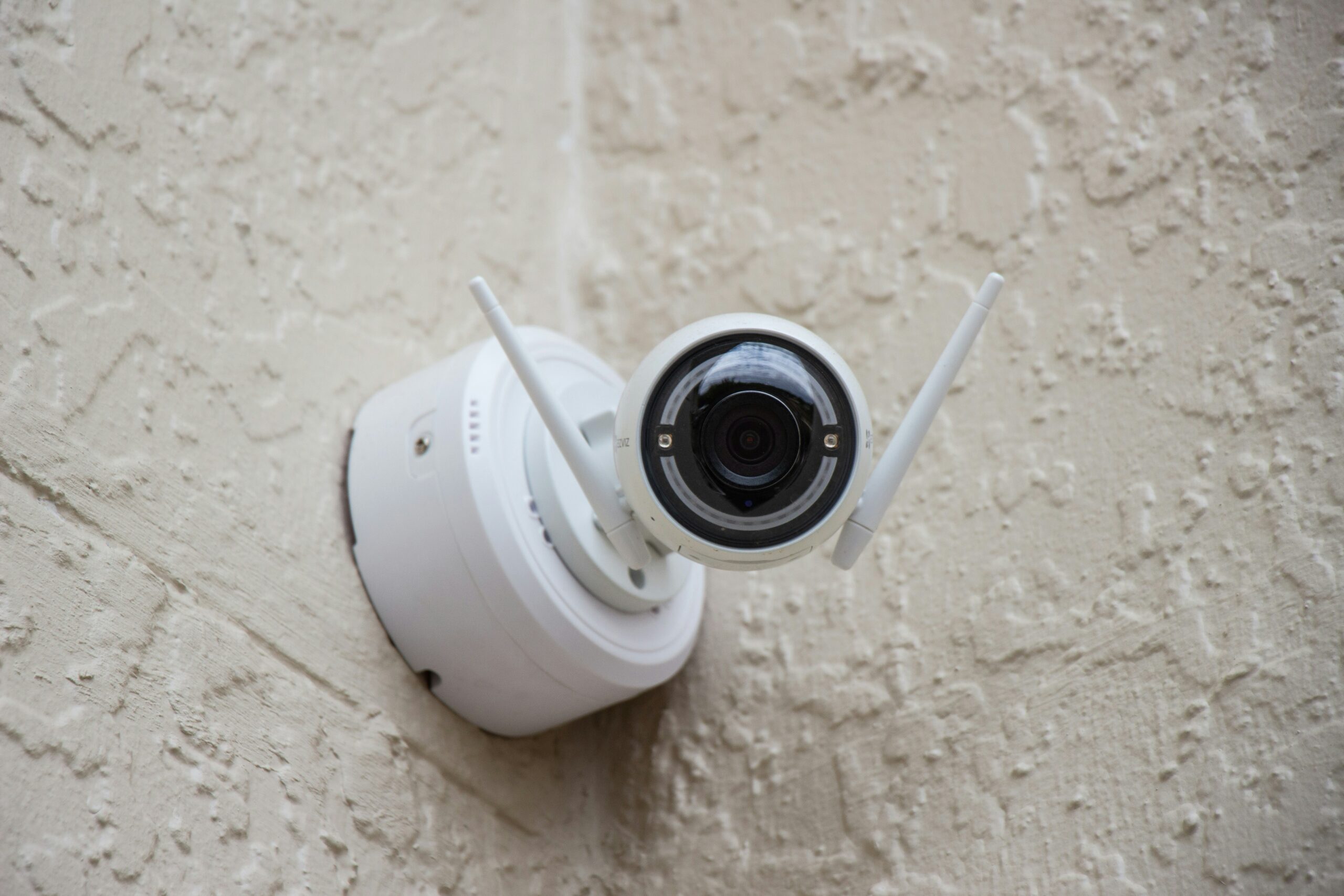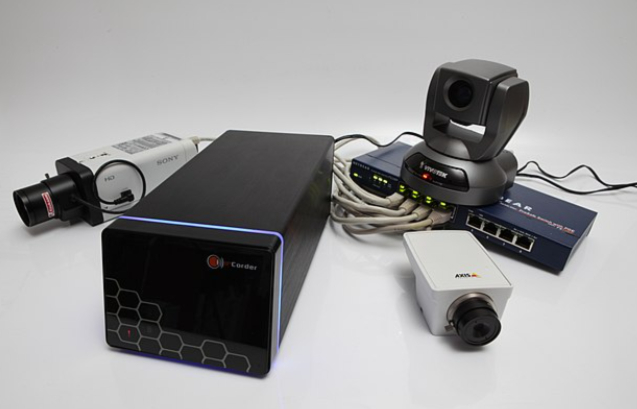How Long Do Hme Security Cameras Keep Footage?

- Resources
How Long Do Hme Security Cameras Keep Footage?
Many homeowners worry about losing important footage — whether it’s for safety, proof, or just peace of mind. The answer isn’t the same for everyone — it depends on your camera type, storage space, and settings. Some cameras keep footage for a few days, while others store it for months.
If you’re unsure how your system works or how long do security cameras keep footage, this guide will help.
So, let’s begin!
Factors Affecting Security Camera Footage Retention
The length of time your security camera keeps recordings depends on several key factors.
Type of Camera System
The way your camera stores footage plays a big role in how long it stays available. DVR (Digital Video Recorder) and NVR (Network Video Recorder) systems save footage on a hard drive, and how long they keep it depends on storage space and recording settings.
Cloud-based cameras work differently, uploading footage to online storage, usually keeping it for 7 to 60 days based on your subscription. If your camera uses an SD card or an external drive, it will store footage until the space runs out, then either stop recording or start deleting old files to make room for new ones.
Storage Capacity
The bigger your storage, the longer your footage stays available. A small SD card or hard drive may only store a few days’ worth of recordings before automatically deleting older files. Cloud storage works differently — free plans often save footage for just a few days, while paid plans can store it for weeks or even months.
If you need to keep recordings longer, upgrading to a larger hard drive or a better cloud plan is a good option.
Recording Mode
How your camera records also affects storage time. Some cameras record continuously, meaning they capture everything 24/7. This fills up storage quickly, so it’s more common for businesses that need constant surveillance.
On the other hand, motion-activated recording only saves footage when movement is detected. This helps extend storage because the camera isn’t saving hours of empty footage. Choosing the right mode depends on your needs — if you want to save storage, motion-activated recording is usually the better choice.
Video Quality & Compression
Higher-quality video takes up more space. A 4K or 1080p camera produces clear, detailed footage, but these larger files fill up storage quickly. Some cameras offer compression technology, which reduces file sizes without lowering video quality too much.
If your camera allows you to adjust video quality, lowering it slightly can help save space and keep footage for longer.
Retention Policies
Retention policies vary based on the camera brand, cloud storage provider, or your own custom settings. Some manufacturers set a default time limit on how long footage is kept before it’s deleted.
Cloud storage services also have limits — free plans typically keep recordings for a few days, while paid plans may store them for months. If your camera has customizable settings, you might be able to extend the retention period by adjusting storage and overwrite options.
How Long Different Security Cameras Keep Footage?
The length of time security cameras keep recordings depends on the type of system you have. Some cameras store footage for just a day, while others can keep it for months. Let’s go over the most common types and how long they usually retain video.
DVR/NVR Systems

Image Source: Wikipedia
DVR (Digital Video Recorder) and NVR (Network Video Recorder) systems store footage on a hard drive. The retention period depends on the size of the hard drive and how much footage the system records daily.
In general, most DVR/NVR setups keep recordings for anywhere between 7 days to several months. If the storage fills up, older footage is automatically deleted to make room for new recordings. Upgrading to a larger hard drive can extend the retention time.
Cloud-Based Cameras
Cloud-based security cameras don’t store footage on a physical device but instead upload recordings to an online service. Most free cloud storage plans keep videos for around 7 days, while paid subscriptions can extend this to 30, 60, or even 90 days.
If you need to store recordings for longer, you’ll likely need a higher-tier cloud plan. However, once the storage limit is reached, old footage is removed automatically unless you back it up elsewhere.
SD Card Cameras
Some cameras use SD cards to store recordings locally. These cameras have limited space, meaning they can only keep footage for a short time — anywhere from 24 hours to a few weeks, depending on the size of the SD card and recording settings.
Motion-activated recording can help extend storage time, but eventually, the camera will overwrite older footage when the card reaches its limit. If you want longer retention, you can use a larger SD card or manually back up important clips before they get deleted.
IP Cameras with External Storage
IP cameras that allow external storage (such as USB drives or network-attached storage) have a flexible retention period. Since you control the storage, footage can be kept as long as there’s enough space.
Some people set up automatic backups to ensure they don’t lose important footage, while others use large external hard drives to keep recordings for months. The retention time depends entirely on the size of the storage device and how the system is configured.
Business Security Systems
Many businesses are required to keep security footage for a certain period, usually between 30 to 90 days. This is often due to legal or regulatory requirements, such as for banks, retail stores, and offices.
Business security systems typically have large storage capacities or cloud-based retention plans to ensure they meet these requirements. If you own a business, it’s a good idea to check local laws to see how long you need to keep your security recordings.
How to Extend Your Camera’s Footage Retention?
If you need your security camera to keep recordings for a longer time, there are a few simple ways to make that happen.
Upgrade to a Larger Hard Drive or SD Card
If your camera stores footage on a hard drive or SD card, increasing the storage size is the easiest way to keep recordings for longer. A DVR or NVR system with a small hard drive might only save a few days’ worth of footage before overwriting old recordings.
Upgrading to a bigger hard drive lets you store weeks or even months of video. Similarly, if your camera uses an SD card, switching to a higher-capacity card allows it to hold more footage before it starts deleting old files.
Use Cloud Storage Plans for Extended History
Cloud-based security cameras typically come with a free storage plan, but these plans only keep footage for a short time — often 7 to 30 days. If you need to store recordings for longer, upgrading to a paid plan is a good option. Some cloud providers offer 60 or 90-day storage options, allowing you to access past footage whenever needed.
This is especially useful if you need to review an event that happened weeks ago. Just be sure to check your provider’s retention policy so you know exactly how long your videos will be saved.
Adjust Recording Settings
Your camera’s recording settings play a big role in security camera footage retention. If your camera records 24/7, it will fill up storage much faster than a motion-activated setting. Switching to motion-triggered recording ensures that only important moments are saved, extending how long your footage lasts.
Lowering the resolution can also help — 1080p and 4K recordings take up a lot of space, so reducing the quality slightly can free up storage without making the video unusable.
Regularly Backup Footage on an External Drive
If you want to keep old recordings without using up your camera’s storage, backing them up to an external hard drive or a cloud service is a great solution.
Many home surveillance storage setups allow users to transfer files to a computer or an external drive. This way, even if your camera deletes older footage, you still have a copy saved elsewhere. Setting up a regular backup routine can prevent losing important clips when your storage fills up.
Set Up Automatic Overwriting to Manage Space Efficiently
Some security systems have an auto-delete or overwriting function that helps manage space more efficiently. Instead of stopping recording when storage is full, the system will automatically delete the oldest files to make room for new ones. If your camera allows custom retention settings, you can adjust the time frame before footage is overwritten.
Wrap Up
So, you’ve got a clear idea about “how long do security cameras keep footage.” Basically, the CCTV recording duration depends on your camera type, storage space, and settings. Some systems keep footage for just a few days, while others store it for months.
If you need longer retention, upgrading storage, using cloud plans, or adjusting recording settings can help. Regular backups also ensure you don’t lose anything important.
And if you’re looking for the best option, explore Phrogging.io top security camera systems to find a storage solution that fits your needs!
FAQs
Can I retrieve deleted footage?
In most cases, once footage is deleted, it’s gone for good. However, if your system has a backup feature or cloud storage, you might be able to recover it. Some data recovery tools can restore deleted files, but this depends on your camera’s storage type and settings.
How do I check my camera’s storage duration?
You can check your camera’s settings in the app or system menu. Most security cameras display storage details under “Storage” or “Recording Settings.” If using cloud storage, log in to your provider’s account to see how long recordings are kept before they are automatically deleted.
What happens when storage is full?
When storage fills up, most cameras automatically overwrite the oldest footage to make space for new recordings. If your system doesn’t have an overwrite feature, it stops recording until you manually delete old files or expand storage with a larger hard drive, SD card, or cloud plan.
How secure is cloud storage?
Cloud storage security depends on the provider. Reputable services use encryption to protect footage from hackers. However, no system is 100% secure, so enabling two-factor authentication (2FA) and regularly updating passwords can help. Always choose a trusted provider with strong security measures to keep your footage safe.
Do home security cameras delete footage?
Yes, most home security cameras delete old footage once storage is full or after a set retention period. Some systems overwrite older recordings automatically, while others require manual deletion. If you want to keep footage longer, consider increasing storage or setting up regular backups.
How long do residential security cameras keep footage?
The retention period varies based on the camera type and storage capacity. Most home cameras store footage for 7 to 30 days if using cloud storage, while DVR/NVR systems can keep recordings for months — depending on the hard drive size and recording settings.
What happens to old security camera footage?
Old footage is usually deleted or overwritten when storage runs out. Some systems allow you to manually save important clips before they are erased. Cloud services typically remove recordings once they exceed the retention period unless you download or pay for extended storage.
Can I get CCTV footage from 2 years ago?
It’s unlikely unless the footage was manually saved or backed up. Most security systems don’t store recordings that long due to storage limits. However, businesses or institutions with legal requirements archived footage. Checking with the camera owner or service provider is the best option.